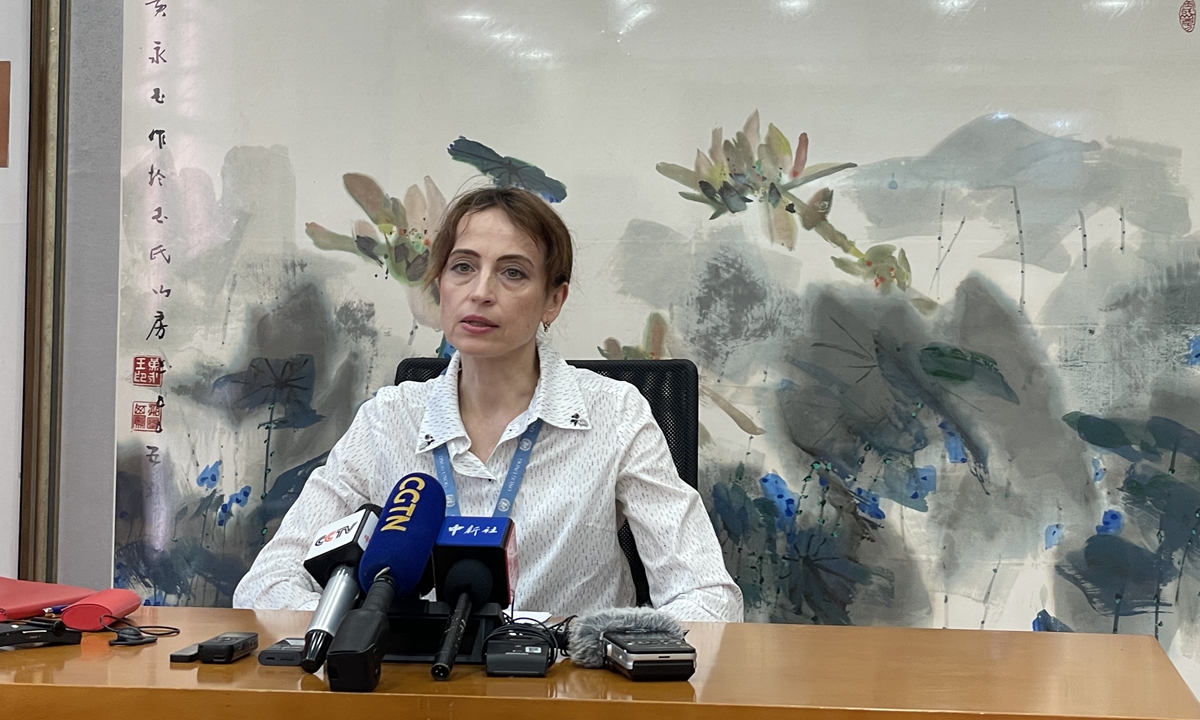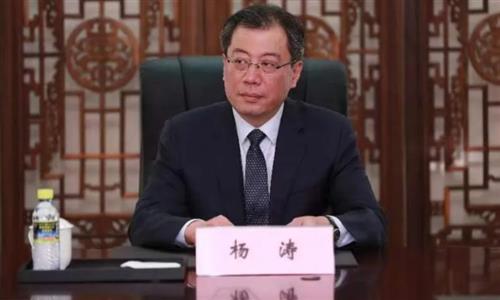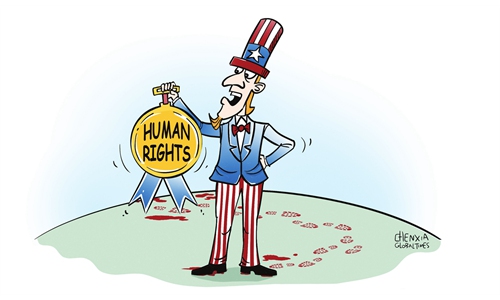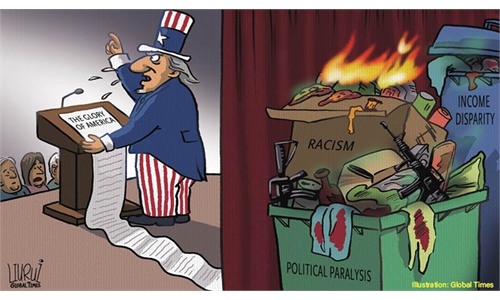Unilateral sanctions against China do not conform with a broad number of international legal norms: UN expert
Sanctioning states urged to tackle over-compliance of businesses, mitigate humanitarian impact

Alena Douhan, the UN Special Rapporteur on unilateral coercive measures and human rights, speaks to a press conference in Beijing on May 17, 2024. Photo: Liu Xin/GT
Unilateral sanctions against China do not conform with a broad number of international legal norms, are introduced to apply pressure on the country, and can be qualified as unilateral coercive measures, the UN Special Rapporteur on unilateral coercive measures and human rights, Alena Douhan, said in a press conference in Beijing on Friday after a 12-day official visit to several cities in China, including Urumqi, Shihezi and Hotan in Northwest China's Xinjiang Uygur Autonomous Region.
Unilateral sanctions have been imposed against China since 2017 with mounting US pressure on Chinese technological companies and the imposition of export controls, designation of companies' officials and the launch of administrative and civil charges. These have been followed by further sanctions and restrictions related to China's Xinjiang region and Hong Kong Special Administrative Region, by expanding the list of targets to include key sectors, including in agriculture, construction, trade, green technologies, energy, finance, telecommunications and others.
As the Special Rapporteur on the negative impact of unilateral coercive measures on the enjoyment of human rights, Douhan visited China from May 6 to 17 to gather firsthand information on the negative impact of unilateral sanctions in China. During her stay in China, she met representatives from national and local government institutions, non-governmental organizations, associations, humanitarian actors, businesses, UN entities, academia, businesses, as well as the diplomatic community.
One day before the UN expert's press conference, the US announced on Thursday that it was adding another 26 Chinese cotton traders or warehouse facilities to the entity list of the so-called Uyghur Forced Labor Prevention Act (UFLPA) that bars goods related to so-called forced labor in the Xinjiang region, Reuters reported.
The UFLPA, which was enacted in December 2021, has been widely criticized as "one of the most notorious laws of the 21st century." It creates a "rebuttable presumption" that all goods partially or wholly produced in the Xinjiang region are "tainted by forced labor" and it requires corporations to prove with "clear and convincing evidence" that imports from the region are not made by forced labor.
During the Friday meeting with media, Douhan noted that the establishment of a "rebuttable presumption" regarding the "wrongdoing" of companies with any connection to Xinjiang or designated entities, particularly those involved in recruiting individuals from ethnic minority groups in China or operating within designated sectors of the economy, places the burden of proof on business actors.
It violates fundamental principles of international law, as well as provisions outlined in resolutions of the UN General Assembly and UN Human Rights Council and represents an attempt to supplement legal standards with a so-called rules-based order, said Douhan.
Sanctions against broad sectors of the economy in China's Xinjiang region coupled with those against large companies affect the overall economy of the region, result in disruptions of industrial and trade relations, adversely affect all those involved in the supply chains with a link to this region, even outside China, including third country employees, and consequently result in rising unemployment, particularly affecting the most vulnerable, said Douhan.
The UN expert also noted that minorities in the Xinjiang region would also be affected and those who have been lifted out of poverty may face the risk of falling into poverty once again in an interview with the Global Times on Friday.
There are no legal grounds from the perspective of international law to impose sanctions against specific types of industry, cotton or high-tech area or batteries or any others. And "transparency does not exist" when companies submit explanations to related departments to protect their rights by judicial means, said Douhan.
Douhan also called on sanctioning parties to lift and suspend all unilateral sanctions applied to China, Chinese nationals and companies without authorization from the UN Security Council.
"I wish to reiterate the illegality of extraterritorial application of unilateral sanctions and I call on states, in particular sanctioning states, to effectively address over-compliance of businesses and other entities under their jurisdiction in order to mitigate or completely eliminate any adverse humanitarian impact," said the expert.




